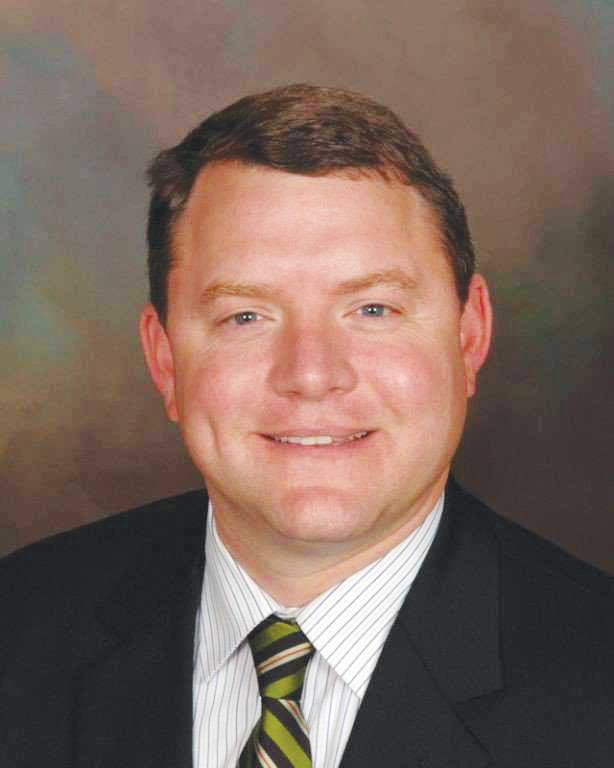Senator Bradley files river restoration projects bill
GREEN COVE SPRINGS – Sen. Rob Bradley (R-Fleming Island) filed a funding bill Tuesday that could bring an annual windfall of $50 million to restoration projects for the St. Johns River and the …
This item is available in full to subscribers.
Attention subscribers
To continue reading, you will need to either log in to your subscriber account, or purchase a new subscription.
If you are a current print subscriber, you can set up a free website account and connect your subscription to it by clicking here.
If you are a digital subscriber with an active, online-only subscription then you already have an account here. Just reset your password if you've not yet logged in to your account on this new site.
Otherwise, click here to view your options for subscribing.
Please log in to continueDon't have an ID?Print subscribersIf you're a print subscriber, but do not yet have an online account, click here to create one. Non-subscribersClick here to see your options for subscribing. Single day passYou also have the option of purchasing 24 hours of access, for $1.00. Click here to purchase a single day pass. |
Senator Bradley files river restoration projects bill
GREEN COVE SPRINGS – Sen. Rob Bradley (R-Fleming Island) filed a funding bill Tuesday that could bring an annual windfall of $50 million to restoration projects for the St. Johns River and the Keystone Lakes Region.
The bill, Senate Bill 204, comes after a similar funding bill introduced in the 2017 legislative session that would have provided $20 million to similar projects passed in the Florida Senate and died in the Florida House.
Bradley said while his former bill failed to pass, he was able to slip $13.3 million for restoration efforts into state appropriations.
“At the end of the day, what we didn’t accomplish through a traditional Senate bill we were able to accomplish in the General Appropriations Act,” Bradley said. “I’d like to do more and embed [funding] in statute so there’s a more of a permanency in the appropriations and so we don’t have to fight the battle year after year.”
The money would come from the Land Acquisition Trust Fund, created after voters overwhelmingly approved Amendment 1 in 2014 to divert 33 percent of net revenue from the existing excise tax on documents into a pot of money to preserve lands.
State funding – especially consistent state funding – plays a reliably key role in water supply plans.
“Over the past two years…the district has invested $26 million in this area between cost-share projects with our partners and district-led projects,” said Teresa Monson, public communications coordinator for the St. Johns River Water Management District, in an emailed comment. “If the district were to receive funds earmarked for that specific purpose, she said, then “[t]hat’s a significant investment.”
Northeast Florida water advocates have lauded the bill as a positive step towards insuring that restoration projects can be completed in tandem with pollution and damage prevention projects.
“I think the challenge will be is prioritizing the projects that have the most benefits, because obviously you can spend dollars endlessly, but if they’re not true restoration projects they’re not going to fulfil the intentions,” said St. Johns Riverkeeper Lisa Rinaman. “That’s why we want to work closely with Bradley to ensure…this funding comes to fruition, and that it’s invested and really focused on the long term health of the St. Johns.”
Rinaman points to projects such as the proposed dredging of the St. Johns River as a project where concurrent funds such as these are necessary.
“The proposed dredging of the St. Johns will have negative impacts on the river all the way to Clay County. That project is not being mitigated properly and so we’re doing continual damage to the St. Johns which will require additional funding. You need to have restoration and prevention so you’re not undermining the investment and causing additional harm.”
“So we’ll continue to advocate instead of celebrate this bill as it moves through the legislative process,” she said.
Bradley has placed an enduring importance on water supply funding for Northeast Florida.
Last legislative session, Bradley sponsored an approved bill that appropriated $5 million in concurrent funding for the Black Creek Water Resource Development Project.
The project would capture excess water along Black Creek and pipe it through along State Roads 16 and 21 to a spreader field near Lake Magnolia on Camp Blanding property.
The water would then travel down Alligator Creek, which would increase the water levels of all bodies within the Etonia Chain of Lakes – which include the ailing Lake Geneva and Lake Brooklyn.
These lakes have long suffered from low water levels, which have hurt the City of Keystone Heights financially.
The pipeline would have a 10 million gallon transmission capacity. The project’s main goal is to recharge the upper Floridan Aquifer through the bolstering of Lake Geneva and Lake Brooklyn, which are aquifer recharge areas.
The Florida Legislature goes into session in January 2018.








